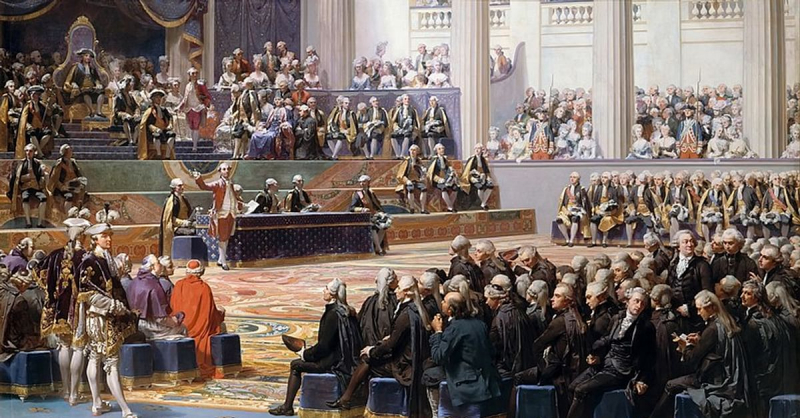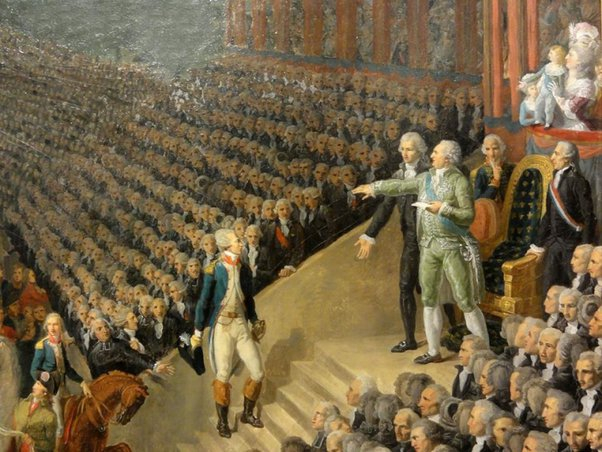Meeting with the Estates-General, May 5, 1789
The Estates-General was an assembly that represented the three groups, or "estates," that existed in France at the time: the clergy, the nobles, and the commoners, or the Third Estate.
The Estates-General had already met a number of times, but because each Estate was only given one vote, the clergy and nobility frequently banded together against the commoners, rendering them powerless.
King Louis XVI convened the Estates-General in 1789 to solve the monarchy's financial difficulties. The Third Estate founded its own National Assembly after learning more about the problem and understanding that the two other Estates might easily lay the cost of solving the issue on the commoners through taxes. The new National Assembly sought to negotiate with the clergy and nobles on May 5, 1789, but no accord was reached. Because the Estates-General had not met in such a long time, there was some discussion about which processes should be followed. Many of the contentious traditions that were the norm in 1614 but unpleasant to the Third Estate at a time when the concept of equality was paramount to public debate were retained by the King. The nature of voting remained the most contentious and significant choice.
Dates: May 5, 1789














